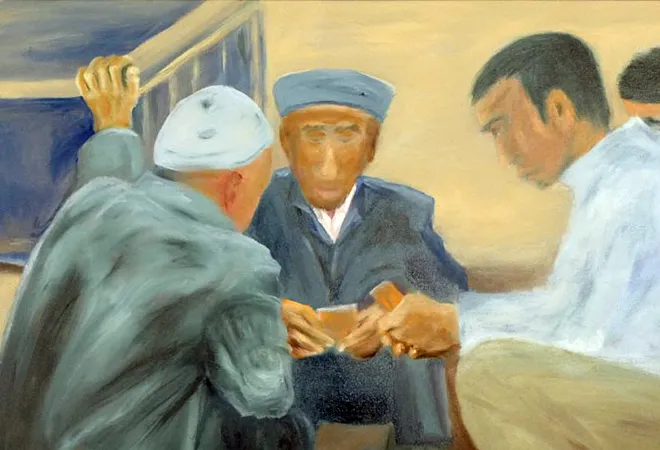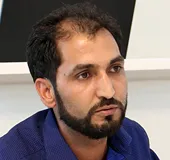
This is the 109th article in the series The China Chronicles.
Read the articles here.
After the mass knife attack in Kunming that left 31 people dead and nearly 150 injured at the Kunming railway station in March 2014, China’s approach towards ethnic Muslims living in Xinjiang hardened.
In September 2020, China’s President Xi Jinping praised the “success” of the strategy adopted since April 2014 in Xinjiang following the insurrection by alleged Uyghur militants. Under its strategy in Xinjiang, Xi used organs of the Chinese Communist Party’s (CCP) dictatorship to unleash a string of human rights violations, including high-tech surveillance of the minority Muslim community in the restive northwest province. An estimated one-and-a-half-million Uyghurs have been detained in concentration camps for forced re-education and political indoctrination. This oppression of the ethnic minorities has led to the systematic ‘demonisation’ of native Uyghurs, and elevated Xi’s status as an autocratic populist within China. The Xinjiang strategy has received public commendation as a security campaign to stamp out the separatism and centrifugal tendencies of Uyghur Muslims. However, globally, Xi’s actions have faced criticism for widespread human-rights abuses and forced cultural assimilation. Some western democratic countries have also labelled Xi’s policies as genocide.
This oppression of the ethnic minorities has led to the systematic ‘demonisation’ of native Uyghurs, and elevated Xi’s status as an autocratic populist within China.
While previous CCP leaders emphasised the socio-economic development of the conflict-torn Xinjiang, Xi has used the “weapons of the people’s democratic dictatorship ‘without any hesitation.’” Xinjiang, the home of the Uyghur Muslims, is of immense geostrategic significance to China as it serves as a direct link to Central Asian, West Asian and European markets, placing it at the heart of the Belt and Road Initiative (BRI). Xinjiang also provides the starting point for the controversial and sensitive China Pakistan Economic Corridor (CPEC), BRI’s flagship initiative. However, the centuries-old contested history, ethnic discord, and exploitation of rich hydrocarbon resources by the incoming Chinese Han population has made Xinjiang prone to violence and separatist activities.
In a strategy that has led to massive demographic transformation of the region, the population of Chinese Hans in the region reached 40 percent in 2010 from a meagre 6 percent in 1945. On the employment front, 65 percent of the Chinese Hans are employed in the secondary and territory sector, while 81 percent of the indigenous population are predominantly engaged in activities related to agriculture. The demographic changes and increased economic exploitation has given rise to ethnic discord. which the CCP is blaming on separatism, violent extremism and terrorism. Uyghur Muslims have especially become the target of the CCP after commencement of the BRI, Xi’s “century.” The CCP realises that its massive investment under the BRI project in Xinjiang is susceptible to risks due to periodic violence in the region. Hence, the CCP under Xi has used the “three evils of terrorism, separatism, and extremism” as a pretext to supress the Uyghur Muslims to ensure that its investment is safe.
The demographic changes and increased economic exploitation has given rise to ethnic discord. which the CCP is blaming on separatism, violent extremism and terrorism.
Xi Jinping and China’s changing policy towards Uyghurs
President Xi Jinping made his first visit to the restive Xinjiang region in 2014 and announced the second ‘strike hard campaign’ to integrate Uyghur Muslims with the dominant Han culture. Xi stressed on the integration of Uyghurs through family planning regulations that served Beijing’s agenda to bring about demographic change and erode the rich cultural identity of the ethnic population and ensure their subjugation. Uyghur women and their families are forced to pay fines (¥2,000 to 6,000) and are subjected to forced abortions at any stage of pregnancy, even if it was a third child, which is legally allowed under the provincial regulations. The CCP started repressive Sinicisation, and resorted to forced sterilisations and abortions, resulting in a decline in the natural population growth rate of Uyghurs by 84 percent, from 1.6 percent to 0.26 percent between 2015 and 2018 in Kashgar and Khotan, the two Uyghur dominated regions in Southern Xinjiang. The CCP has reportedly poured in hundreds of millions of dollars for this campaign.
Under increased high-tech surveillance, the CCP has also carried out DNA profiling of the Uyghurs through mandatory health examinations. Party Secretary Chen Quanguo, a solider-turned-politician, known for his anti-minorities policies in Tibet, was sent to Xinjiang in 2016. Chen, an ethnic policy innovator, quickly rolled out the securitisation strategy within a year and made Xinjiang the most militarised zone in China.
The CCP started repressive Sinicisation, and resorted to forced sterilisations and abortions, resulting in a decline in the natural population growth rate of Uyghurs.
After 2017, Xi Jinping called for building a “great wall of iron” to protect national unity and solidarity in the troubled Xinjiang province. Subsequently, the BRI was also included in the party constitution. Under the great wall of iron, the CCP has intensified its campaign and set up 1,200 ‘re-education camps’ by investing more than US$ 108 million. With the help of Xinjiang Production and Construction Corps (XPCC), more than 1.5 million Uyghurs — and Kazaks, Kyrgyz and Uzbeks living in Xinjiang — were sent to “re-education camps” and forced to pledge loyalty to the CCP, learn Mandarin, and denounce Islam and their culture. According to leaked documents, Uyghur Muslims having “a long beard,” “wearing a veil” or who violated the family planning norms were sent to these re-education camps. The detainees were used for forced labour and even sent to work at China’s manufacturing powerhouses elsewhere in the country during COVID-19. The CCP also adopted a “kill-on-demand” strategy as an emergency measure to harvest the organs of the Uyghur detainees to cater to the increased demand within the Mainland following the spread of the Novel Coronavirus.
Xi also used the economic prowess and hegemonic postures of Beijing to silence the Muslim countries. He has ensured that, but for a few Western democracies, the Muslim world has largely remained silent on China’s excesses. In 2019, two dozen democracies wrote a letter to the president of the Human Rights Council to institute an investigation on human rights abuses in Xinjiang but were unwilling to call for an oral debate. US President Joe Biden has reiterated his pre-election stand and criticised China on the Uyghur issue and has stressed that human rights must be a core component of the US’ engagement with China. After Biden assumed office, a few western democracies have become more vocal on the Uyghur issue and have even called it a genocide. However, only time will tell if Biden can use all his democratic allies and NATO partners to call for investigation with full vigour so that the remaining Uyghur Muslims can be saved. In the meanwhile, China has ironically been appointed to the influential UN Human Rights Council Panel in October 2020.
The views expressed above belong to the author(s). ORF research and analyses now available on Telegram! Click here to access our curated content — blogs, longforms and interviews.




 PREV
PREV


